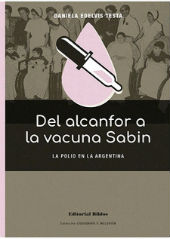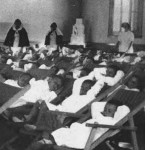February 2023

Boletim de Eugenia, n. 39, 1932. Source: BN Digital. Salvador de Toledo Piza Jr was a former Boletim de Eugenia periodical director. The publication carried the propaganda of eugenics with a Mendelian base led by the most radical wing of the movement.
Eugenics reached its peak in Brazil during the interwar period, bringing together both moderate positions and radical and racist ones. The article Between scientific dissemination and late-stage eugenics: ruptures and continuations in the intellectual trajectory of Salvador de Toledo Piza Jr., 1898-1988, analyzes the eugenicist ideology in the work of Salvador de Toledo Piza Jr., a geneticist and professor at the Escola Superior de Agricultura “Luiz de Queiroz,” in São Paulo’s countryside, focusing on how Brazilian eugenicists reconfigured their practices after the Second World War.
Documentary research involving articles, correspondence, and notes from this former director of the Boletim de Eugenia investigates the reshaping of eugenics in the post-1945 context, a time when Piza Jr. began to publicize evolutionism. While Piza Jr. stopped publicly defending eugenics in the latter half of the twentieth century, he maintained his racialized notions into the 1950s, corresponded with eugenicist groups in the 1960s, and supported a hierarchical interpretation of human evolution until the late 1980s.
In this article, Guilherme Prado Roitberg, Doctoral candidate at the Graduate Program in Education at Universidade Federal de São Carlos, questions the idea that eugenic theses had fallen into disuse after 1945 and that Brazilian eugenics would have been “soft” and dissociated from scientific racism.
Roitberg, G. P.. (2023).Between scientific dissemination and late-stage eugenics: ruptures and continuations in the intellectual trajectory of Salvador de Toledo Piza Jr., 1898-1988. História, Ciências, Saúde-manguinhos, 30, e2023025.
Eugenics in HCS-Manguinhos:
Gini’s thoughts on eugenics Although Gini is best remembered today as a statistician and demographer, the paper argues that his interest in population statistics was entirely subordinated to his passion for eugenics.
Eugenics in Mediterranean Europe and Latin America HCSM’s new issue explores eugenic thinking and practice beyond the English-speaking world.
Eugenics and sterilization in the United States, 1920 – 1950 Alexandra Minna Stern and her team at the University of Michigan reviews medical records to investigate ethnic and gender bias in sterilization policies.
Eugenics and sterilization in the United States In an interview to HCS-Manguinhos, Alexandra Stern, University of Michigan, talks about her initial findings related to ethnic and gender bias in sterilization policies.
Between Germanic and Latin eugenics: Portugal, 1930-1960 Richard Mark Cleminson discusses the participation of Portuguese eugenicists in “Latin eugenics”.
Brazilian eugenics and its international connections Through an examination of Renato Kehl’s and Edgard Roquette-Pinto’s eugenic projects, the paper investigates their contact with the international thinking in the field.
Latin eugenics in a transnational contextThis thematic issue of HCS-Manguinhos revisits the concept of Latin eugenics in different historical circumstances.








